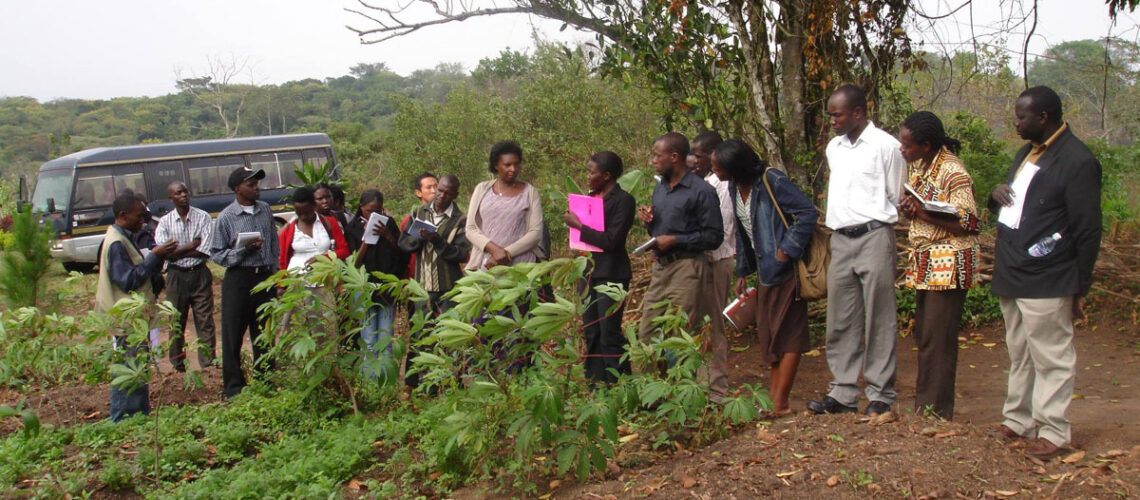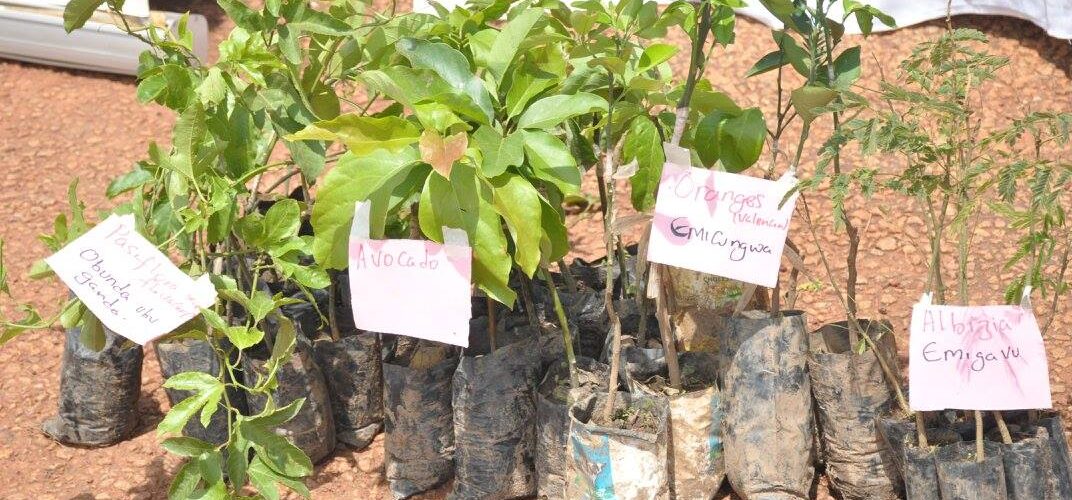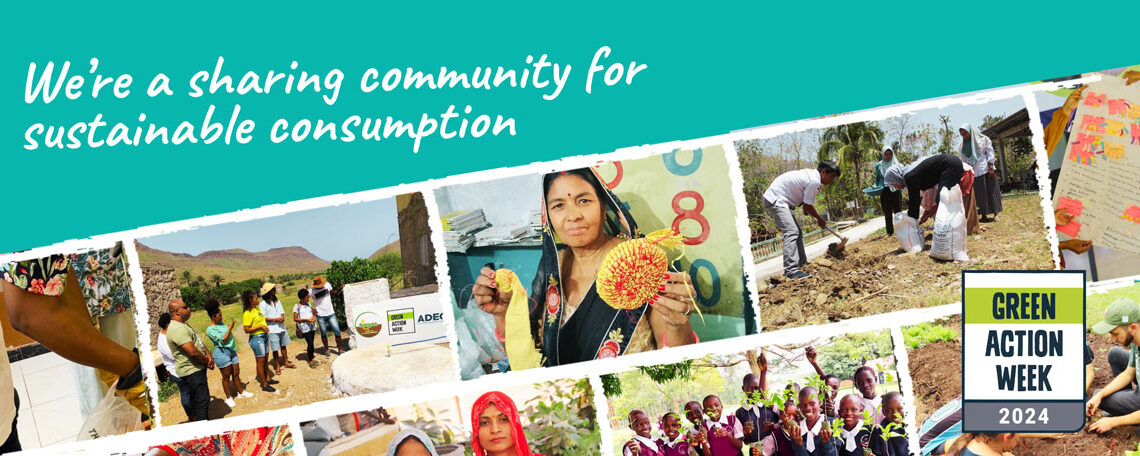Roots of Change
Reforestation, Seed System and Sustainable Farming in Action
Participatory Ecological Land Use Management (PELUM) Uganda
Uganda’s natural forests, home to more than 1 500 species and storing 109 million metric tons of carbon, have shrunk by 2 million hectares in the past 30 years. This loss fuels soil erosion, biodiversity decline, and ecosystem disruption, especially in Kigezi. Key drivers include unsustainable land-use practices, industrial growth, population pressure and corruption.

Participatory Ecological Land Use Management (PELUM) Uganda
Uganda’s natural forests, home to more than 1 500 species and storing 109 million metric tons of carbon, have shrunk by 2 million hectares in the past 30 years. This loss fuels soil erosion, biodiversity decline, and ecosystem disruption, especially in Kigezi. Key drivers include unsustainable land-use practices, industrial growth, population pressure and corruption.
PELUM Uganda’s Green Action Week focused on community-led reforestation with indigenous trees. The agroforestry fair highlighted the many uses of native trees—from food to medicine—while promoting seed exchanges and sustainable forestry practices. Reforesting with indigenous species can mitigate climate change, restore soil fertility, and protect biodiversity in Kigezi. The event drew over 500 attendees, with social media outreach reaching more than 1 million people. Following this, PELUM Uganda launched a tree-planting campaign, engaging member organizations, students, and local groups to plant out more than 1 000 trees.

PELUM Uganda’s Green Action Week focused on community-led reforestation with indigenous trees. The agroforestry fair highlighted the many uses of native trees—from food to medicine—while promoting seed exchanges and sustainable forestry practices. Reforesting with indigenous species can mitigate climate change, restore soil fertility, and protect biodiversity in Kigezi. The event drew over 500 attendees, with social media outreach reaching more than 1 million people. Following this, PELUM Uganda launched a tree-planting campaign, engaging member organizations, students, and local groups to plant out more than 1 000 trees.
Envirocare, Tanzania
Farmer-managed seed systems are a game changer for smallholder farmers, especially in areas with limited access to formal seed systems. These systems boost agrobiodiversity by allowing farmers to exchange seeds and grow a wider variety of crops. Agrobiodiversity is the variety of animals, plants and microorganisms that sustain the ecological base of agricultural production of food and non-food products.
Envirocare’s campaign spotlighted traditional farmer-led seed-saving methods, gathering valuable ecological knowledge from Italagwe Village. The 30 local seed varieties and their stories were showcased in a series of exhibitions, allowing participants to learn about the seeds’ benefits, including their medicinal value. The events also featured sessions on sustainable farming and seed-saving techniques, while educational materials on sustainable consumption and local seeds were shared with the community.
Envirocare, Tanzania
Farmer-managed seed systems are a game changer for smallholder farmers, especially in areas with limited access to formal seed systems. These systems boost agrobiodiversity by allowing farmers to exchange seeds and grow a wider variety of crops. Agrobiodiversity is the variety of animals, plants and microorganisms that sustain the ecological base of agricultural production of food and non-food products.
Envirocare’s campaign spotlighted traditional farmer-led seed-saving methods, gathering valuable ecological knowledge from Italagwe Village. The 30 local seed varieties and their stories were showcased in a series of exhibitions, allowing participants to learn about the seeds’ benefits, including their medicinal value. The events also featured sessions on sustainable farming and seed-saving techniques, while educational materials on sustainable consumption and local seeds were shared with the community.
Youth Education Network (YEN), Kenya
Climate change is a major threat to rural communities in Kenya, especially those dependent on farming for food. Many are struggling to adapt to crop failures caused by extreme events like floods.
YEN’s campaign introduced growing vegetables in biodegradable woven sacks at home as an affordable, easy solution to combat food insecurity. This method, which is especially beneficial for women and children, helps overcome the challenge of limited access to productive land.
YEN trained 500 women and youth on this technique, and local radio broadcasts reached more than 500 000 women in Western Kenya. Additionally, YEN hosted ‘envisioning sustainable consumption’ workshops with students, including an essay and painting competition inspired by global Green Action Week 2023’s global workshops on this topic.
YOUTH EDUCATION NETWORK (YEN), KENYA
Climate change is a major threat to rural communities in Kenya, especially those dependent on farming for food. Many are struggling to adapt to crop failures caused by extreme events like floods.
YEN’s campaign introduced growing vegetables in biodegradable woven sacks at home as an affordable, easy solution to combat food insecurity. This method, which is especially beneficial for women and children, helps overcome the challenge of limited access to productive land.
YEN trained 500 women and youth on this technique, and local radio broadcasts reached more than 500 000 women in Western Kenya. Additionally, YEN hosted ‘envisioning sustainable consumption’ workshops with students, including an essay and painting competition inspired by global Green Action Week 2023’s global workshops on this topic.
Rwanda Consumers Rights Protection Organization (ADECOR)
Unsustainable farming practices like monocropping and chemical inputs are harming the environment and depleting soil fertility, making it harder to grow nutritious crops. ADECOR’s campaign, Nurturing a Sharing Community for Sustainable Agriculture in Rwanda, focused on raising awareness in Musanze District about the need for more sustainable farming practices.
ADECOR brought the community together for hands-on gardening events, teaching skills in food production, storage and eco-friendly farming practices. They trained local facilitators on soil preparation, planting, pest management and harvesting, while promoting collaboration to spread sustainable practices. To keep the momentum going, ADECOR also engaged schools to connect sustainable farming with school feeding programs. An open radio show reached 600 000 listeners, further spreading the message!

